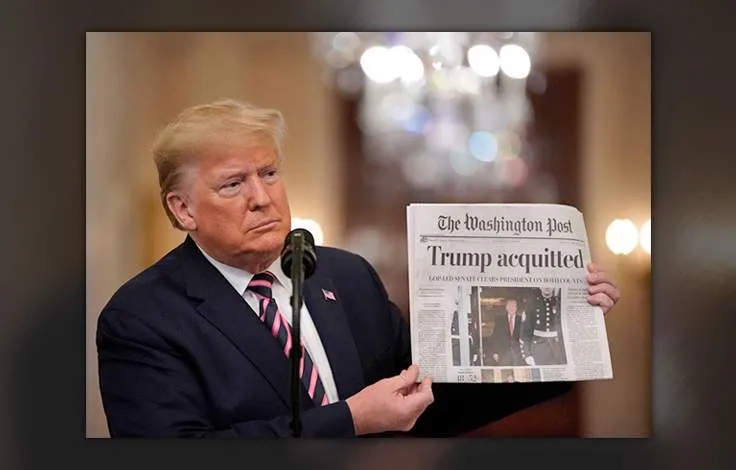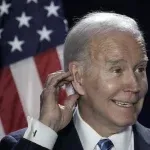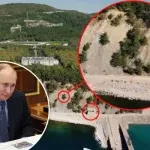(Washington Free Beacon) Special Counsel John Durham’s report largely confirmed what Republicans have said for years about the FBI’s investigation of the Trump campaign. Durham found the FBI opened the probe, known as Crossfire Hurricane, with flimsy evidence, and detailed the FBI’s mishandling of the infamous Steele dossier, which falsely claimed the Trump campaign colluded with the Kremlin.
Durham laid out in painstaking detail the FBI’s misstatements to a federal surveillance court to obtain warrants to surveil Trump campaign aide Carter Page and the Clinton campaign’s hand in spreading false information to smear former president Donald Trump as a Kremlin stooge. Much of that has been laid out in previous investigations and through reports by conservative media outlets.
But there are some surprises in the 320-page report. Here are eight of Durham’s most illuminating discoveries:
FBI Ignored “Clinton Plan” Intelligence
In late July 2016, CIA director John Brennan received an intelligence report that Hillary Clinton personally approved a plan on July 26, 2016, to link Trump to Russia in order to distract from the controversy surrounding her emails. Brennan shared the intelligence with then-president Barack Obama, FBI director James Comey, and other government officials.
According to Durham, the FBI should have seen the intelligence report as a “clear warning sign” that the Clinton campaign may try to “manipulate or influence” the 2016 election. Instead, the FBI failed to factor the plan into its decision making for Crossfire Hurricane, the counterintelligence investigation of the Trump campaign.
Indeed, the Clinton campaign was behind two schemes to publicly portray Trump as in bed with Russia. The campaign funded the discredited Steele dossier and fed reporters with a false claim that Trump’s companies had secret communications with Russia’s Alfa Bank. The FBI investigated both threads. The information was also fed to establishment news outlets, fueling years of conspiracy theories that Trump conspired with Russia to influence the 2016 election.
Durham blasted the FBI for its “startling and inexplicable failure” to take the “Clinton plan” into account.
Bureau Brass Killed Clinton Foundation Investigations
Director Comey and deputy director Andrew McCabe ordered three FBI field offices to close their preliminary investigations into whether foreign governments and businesses donated to the Clinton family charity in order to influence Hillary Clinton.
According to Durham, McCabe ordered the field offices to close their investigations during a Feb. 22, 2016, meeting at FBI headquarters. Attendees said McCabe asserted that “there’s nothing here” and asked “why are we even doing this?” FBI agents left the meeting frustrated with McCabe’s decision. In May 2016, Comey ordered the New York field office to “cease and desist” from its Clinton Foundation investigation because of an undisclosed counterintelligence issue.
Durham highlighted Comey and McCabe’s intervention in the Clinton Foundation probe to contrast the FBI leaders’ aggressive approach to Crossfire, which the bureau opened based on a single unverified tip from an Australian diplomat regarding a conversation he had in London in May 2016 with Trump aide George Papadopoulos.
“Once again, the investigative actions taken by FBI Headquarters in the Foundation matters contrast with those taken in Crossfire Hurricane,” Durham said.
Mueller Team Investigators Worried About Political Influence
Democrats repeatedly defended Special Counsel Robert Mueller’s probe against allegations of anti-Trump bias. Never mind that one of Mueller’s top prosecutors, Andrew Weissmann, attended Hillary Clinton’s ill-fated victory party on Election Night 2016.
According to Durham, two members of the Mueller team expressed concern that an investigation into the Steele dossier was shut down for political reasons.
A special agent and analyst on the Mueller team told Durham’s office that they were prevented from investigating Charles Dolan, a Democratic operative who was a source for the dossier. The Mueller staffers believed Dolan would help settle lingering questions about the dossier, but leaders of the Mueller team blocked the idea. Dolan also had extensive ties to the Kremlin, which might prove embarrassing for investigators focused on Republican ties to Russia.
According to Durham, the Mueller team analyst speculated “that the decision not to open on Dolan was politically motivated.” The analyst said that information about Dolan “ran counter to the narrative that the Mueller Special Counsel investigators were cultivating given that Dolan was a former Democratic political operative.” Dolan had advised Clinton’s 2008 campaign and was a volunteer for her 2016 venture.
The Mueller special agent “discussed whether the decision not to open on Dolan was politically motivated, given Dolan’s extensive connections to the Democratic Party.” The agent said that while she did not believe the decision was political, “she did worry about the optics of the decision, given that Dolan was a prominent Democrat.”
The Mueller investigators also expressed concern to Durham that senior Mueller prosecutor Jeannie Rhee ordered them to shut down their investigation of the Steele dossier because it was “not within the scope” of Mueller’s investigation. This puzzled the Mueller team members because investigators had that same month interviewed dossier author Christopher Steele, the report says. Rhee contributed $5,400 to Clinton’s 2016 campaign.
The FBI Thought a Steele Dossier Source Was a Russian Spy. They Paid Him $220K Anyway.
The FBI investigated Igor Danchenko, the primary source for the discredited Steele dossier, as a possible Russian spy in 2010. That has previously been disclosed, but Durham’s report sheds new light on what information the FBI had about Danchenko’s alleged Russian ties.
Danchenko’s classmates at Georgetown University told Durham’s team that Danchenko claimed that he had served in the Russian military and had worked on “special” projects. Danchenko told a classmate that his Russian passport listed him as a member of the GRU, Russia’s military spy service. In 2008, Danchenko allegedly told a colleague at the Brookings Institution, where he was an analyst, that he missed work “because he had been in South Ossetia fighting Georgians.” And Danchenko bragged to the colleague “about vandalizing the Georgian embassy in Belarus.”
The Durham report lays out a litany of evidence that links Danchenko to Russian spies. The FBI learned that Danchenko informed a Russian intelligence officer in 2006 that he was interested in entering Russian diplomatic service. Danchenko provided documents to the Russian intelligence officer that were to be placed in the Russian embassy’s “diplomatic mail pouch.”
The FBI’s Trump team investigators were aware of this when they interviewed Danchenko in 2017 about his role in the Steele dossier. But still, FBI agents recruited Danchenko as a confidential human source (CHS) and paid him $220,000 through October 2020.
Durham said the arrangement was problematic because the FBI was unable to assess whether the information that Danchenko gave to Steele “was, in whole or in part, Russian disinformation.”
FBI Killed Its Danchenko Probe Because It ‘Mistakenly’ Thought He Left The Country
Investigators obtained a foreign surveillance warrant on Danchenko in 2010 but shut it down the next year after they “mistakenly” believed Danchenko left the country. In reality, Danchenko and his wife purchased a one-way ticket to London but never boarded the flight. They remained in the Washington, D.C., area.
The FBI did not reopen its investigation into Danchenko even after an FBI analyst figured out that he was in the United States.
Durham raises major concerns that a top analyst on Crossfire Hurricane, Brian Auten, was involved in the initial Danchenko investigation but did not notify others on the Crossfire Hurricane team that the dossier source was a suspected Russian spy.
Top Crossfire Hurricane Investigator Had Early Doubts About Probe
Peter Strzok, the former deputy chief of FBI counterintelligence, opened the probe into the Trump campaign on July 28, 2016, after receiving the tip from Australian diplomats about Papadopoulos. Strzok would oversee Crossfire Hurricane and later serve on the Mueller team before being fired because of his anti-Trump text messages.






